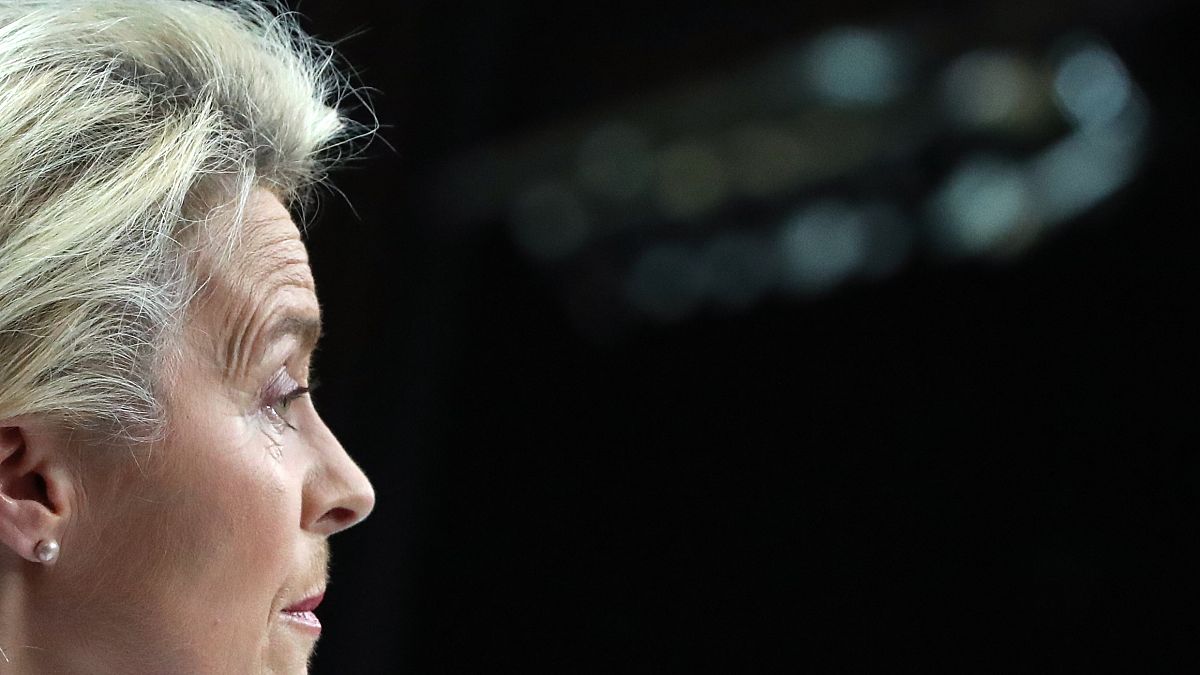EU chief Ursula von der Leyen will deliver her first landmark state of the union address on Wednesday. What can expect from it?
EU chief Ursula von der Leyen will deliver her first landmark state of the union address on Wednesday.
The speech, delivered to MEPs, traditionally sets out the European Commission's priorities for the coming year.
So, what issues will she likely focus on and how has she fared since taking office at the end of last year?
Pandemic politics
As COVID-19 spread throughout Europe in the spring, healthcare systems buckled, unprecedented lockdowns followed and borders shut.
Despite pleas from Brussels, EU countries appeared to act in their own national interests and mistakes were made.
"It is also true that too many were not there at a time when Italy needed a helping hand at the very beginning," von der Leyen admitted in April.
"Where they didn't do very well at first was the gut reaction in terms of communication and display of solidarity especially in the case of Italy," explains Matina Stevis-Gridneff, Brussels correspondent for the New York Times.
"The issues of travel and the erection of borders where there were none, especially within Schengen, were a real shocker I think for the Commission."
Economic downturn
The coronavirus lockdowns also devastated Europe’s economies, many are dealing with record recessions, unemployment is rising and some businesses may never reopen.
The latest forecast from the European Commission projects an 8.7% contraction in the eurozone.
However, the EU did do a deal, significantly agreeing to share debt for the first time with a €750 billion recovery fund to help those hardest hit.
"I think what people will remember about the past year will be the common debt part of it," said Duncan Robinson, Brussels bureau chief at The Economist.
"That was a huge step forward for the EU and it took place under her watch... she's handled it as well as can be but these are really really tough times."
The EU recovery package is currently going through rounds of talks between the European Commission, Council and Parliament. While MEPs and the Commission are seeking a bold proposal including rule of law conditions and new own resources to finance it, European capitals are unlikely to budge on the issues.
Migration puzzle
As fire took hold in the Moria refugee camp last week, some suggested the EU’s migration policy had gone up in flames with it.
It is the persistent crisis that will never go away, 2020 has not been 2015 but numbers have been rising this year and an agreement on migration policy appears as far away as ever.
"My criticism of the Commission has always been come up with a big idea that everyone can buy into," said Brian Maguire, Brussels reporter.
"What has happened is that they have tried to tinker around the edges of existing plans. It's not going to work. You can't expect Hungary to buy into something it disregarded so many times, or they will pay for a solution, they will pay to keep migrants away. We deal with the reality of the situation country by country. You need a big plan that everyone can buy into, and that means incentives and disincentives."
The European Commission has brought forward the release of its new migration pact from the end of the month. However, gaining consensus on a politically toxic issue will prove challenging.
A geopolitical commission
Far and near, the EU is facing hostile actors and foreign policy challenges: from an emboldened China and Russia to crises in the East Mediterranean and Belarus.
Part of Team Ursula's mission statement was to make the commission more "geopolitical" and more agile to act on foreign policy issues, despite the powers remaining within the remit of EU countries.
For Ian Lesser, at the German Marshall Fund think-tank, this has been one of Ursula's successes.
"I think maybe the biggest success that she has had is simply getting people to focus on a European foreign policy. There's a lot more debate on that now. There's a lot more consensus about that too."
Green goals
One of the new president's flagship policies, the European Green Deal was announced with much pomp and fanfare. The Commission wants the EU to be carbon neutral by 2050. Ursula is expected to announce a further reduction in emissions. Currently set at 40% reduction in greenhouse gas emissions by 2030, it will be set at 55%. This shows dedication to climate change challenges, but the devil may be in the detail.
You can watch Ursula von der Leyen's state of the union speech live on euronews.com from 9.15 CEST on Wednesday, September 16.
